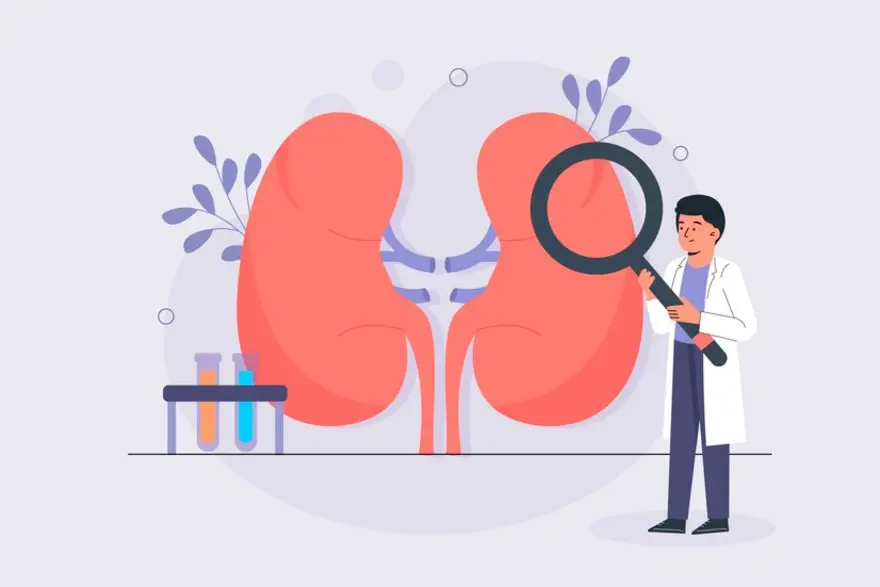BCR-ABL IS (International Scale) Transcript Fusion Quantification
50+ booked in last 3 daysOverview
BCR-ABL fusion transcripts in blood signify a genetic anomaly where BCR and ABL genes merge. This fusion is relevant for diagnostics and treatment monitoring. Targeting therapies based on these transcripts improves precision in managing related conditions.
BCR-ABL IS (International Scale) Transcript Fusion Quantification Price
Metropolis Healthcare is a leading diagnostics centre and pathology lab in India equipped with the latest state-of-the-art technologies that provides the BCR-ABL IS (International Scale) Transcript Fusion Quantification with a clear pricing structure.
The BCR-ABL IS (International Scale) Transcript Fusion Quantification Price in Kalbadevi is ₹ 7,550 .
We are committed to deliver accurate and quality results from the best labs in India with complete transparency regarding test cost and turnaround time. No matter where you are, we strive to offer patients high-quality service that is affordable and accessible.
Frequently Asked Questions
This test measures the levels of BCR-ABL fusion transcripts in your blood. These fusion transcripts are formed when two genes, BCR and ABL, fuse together. The presence and quantity of these fusion transcripts help diagnose and monitor chronic myeloid leukemia (CML).
This test is done for the following reasons:
- To diagnose chronic myeloid leukemia (CML)
- To assess the response to treatment in CML patients
- To monitor disease progression and detect minimal residual disease
- To guide treatment decisions and adjust medication dosage
This test is recommended if you have:
- Symptoms suggestive of chronic myeloid leukemia (CML) such as fatigue, weight loss, or abdominal discomfort
- Abnormal complete blood count (CBC) results that indicate a potential blood cancer
- A confirmed diagnosis of CML and need regular monitoring
- Been on treatment for CML and require assessment of treatment response
The normal range for BCR-ABL IS Transcript fusion Quantification varies depending on treatment status. Elevated levels may indicate CML or treatment resistance, while undetectable levels indicate a good response to treatment. Abnormal results should be discussed with your doctor for further evaluation and management.
- Normal range: Varies depending on treatment status
- Elevated levels may indicate CML or treatment resistance
- Undetectable levels indicate a good response to treatment
During this test:
- A small blood sample will be collected from your vein using a needle.
- The sample will be processed in the laboratory using real-time PCR.
- The test is quick and relatively painless, but you may experience a slight pricking sensation when the needle is inserted.
To prepare for this test:
- No special preparations are required.
- Inform your doctor about any medications you are taking, as certain drugs may interfere with the test results.
- Follow your doctor's instructions regarding fasting or any other specific requirements.
Other tests that may be ordered alongside BCR-ABL IS Transcript fusion Quantification include:
- Complete Blood Count (CBC): To assess overall blood cell counts and any abnormalities
- Bone Marrow Aspiration and Biopsy: To further evaluate the bone marrow cells for a definitive diagnosis of CML and assess disease progression
- Cytogenetic Testing: To identify specific chromosomal abnormalities associated with CML
BCR-ABL quantitative real-time PCR test or BCR-ABL RT-qPCR test.
Chronic myeloid leukemia (CML) is a type of blood cancer that affects the bone marrow's ability to produce mature blood cells. It is characterised by the presence of the BCR-ABL fusion gene, which results in uncontrolled cell growth and decreased production of healthy blood cells.
Ratings & Reviews (0)
Why Metropolis?
Metropolis has a team of 200 senior pathologists and over 2000 technicians delivering diagnostic solutions in the areas of routine, semi specialty and super specialty domains like Oncology, Neurology, Gynaecology, Nephrology and many more.
We offer a comprehensive range of 4000+ clinical laboratory tests and profiles, which are used for prediction, early detection, diagnostic screening, confirmation and/or monitoring of the disease.





















 WhatsApp
WhatsApp